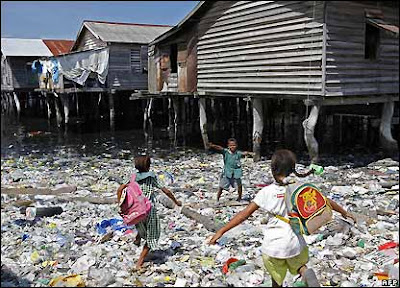
This young man is taking a break from what annual sport in Spain?


 Lyla enters from the back, walking past nurses in scrubs and administrators in suits, their identification tags clipped to the bottom of their jackets. They sit on picnic tables scattered about the criss-cross of roadways used by off-duty ambulances and delivery trucks. There is the low buzz of a place that is always open, which quickly becomes background noise as Lyla enters the hospital.
Lyla enters from the back, walking past nurses in scrubs and administrators in suits, their identification tags clipped to the bottom of their jackets. They sit on picnic tables scattered about the criss-cross of roadways used by off-duty ambulances and delivery trucks. There is the low buzz of a place that is always open, which quickly becomes background noise as Lyla enters the hospital.
 Now that Harry Potter mania has died down (presumably because everyone has finished the last book and seen the latest movie), and I am on page 350 of the 600-odd pages of the penultimate book (I’m always behind in most areas of my life), perhaps now I can comment on the insanity.
Now that Harry Potter mania has died down (presumably because everyone has finished the last book and seen the latest movie), and I am on page 350 of the 600-odd pages of the penultimate book (I’m always behind in most areas of my life), perhaps now I can comment on the insanity. The silenced voices of South Africa experienced an administrative shift in 1989 (and this is not to say that black South Africans allowed their voices to be silenced: many raged against apartheid since its inception after the National Party’s win in the 1948 elections). Newly elected president F.W. de Klerk scrapped the Separate Amenities Act (an act which segregated the races in all areas of life – from white beaches to black universities) and in early 1990, released Nelson Mandela from his 27 years in prison for his determined refusal to allow his voice to be silenced. I am still amazed to this day at the winds of change that persisted so, allowing a political prisoner to become South Africa’s first black president just 4 years later.
The silenced voices of South Africa experienced an administrative shift in 1989 (and this is not to say that black South Africans allowed their voices to be silenced: many raged against apartheid since its inception after the National Party’s win in the 1948 elections). Newly elected president F.W. de Klerk scrapped the Separate Amenities Act (an act which segregated the races in all areas of life – from white beaches to black universities) and in early 1990, released Nelson Mandela from his 27 years in prison for his determined refusal to allow his voice to be silenced. I am still amazed to this day at the winds of change that persisted so, allowing a political prisoner to become South Africa’s first black president just 4 years later.Epilogue
Perhaps at some point I will further explore the fact that Seinfeld and The Simpsons, two popular, long-running and highly-acclaimed comedy shows, made their debuts in 1989. Interesting that these two shows broke away from the happy family comedies of the 80s, so content with the status quo.
 In Dorset, in the southwest of England, there lies the outline of a sexually aroused Celtic warrior, carved out in chalk. Known as the Cerne Abbas Giant, it is thought to be an ancient symbol of spirituality and fertility. And now the promoters of the new Simpsons film have gone and painted a similarly-sized impression of Homer Simpson, naked but for his Y-fronts, offering a doughnut to the club-bearing giant (no really - he's actually holding a club).
In Dorset, in the southwest of England, there lies the outline of a sexually aroused Celtic warrior, carved out in chalk. Known as the Cerne Abbas Giant, it is thought to be an ancient symbol of spirituality and fertility. And now the promoters of the new Simpsons film have gone and painted a similarly-sized impression of Homer Simpson, naked but for his Y-fronts, offering a doughnut to the club-bearing giant (no really - he's actually holding a club). Along with the rest of the closeted Spice Girls fans across the land, I watched Victoria Beckham: Coming to America last Monday. I will fully admit to an odd fascination with the lives of a few celebrities: I followed Kate Moss’s torrid love affair with Pete Doherty, I’m still intrigued by Suri Cruise (along with Katie Holmes’s outfits) and I love seeing pictures of Victoria Beckham in impossibly high heels and tiny get-ups, carting around her three boys – how does she do it?
Along with the rest of the closeted Spice Girls fans across the land, I watched Victoria Beckham: Coming to America last Monday. I will fully admit to an odd fascination with the lives of a few celebrities: I followed Kate Moss’s torrid love affair with Pete Doherty, I’m still intrigued by Suri Cruise (along with Katie Holmes’s outfits) and I love seeing pictures of Victoria Beckham in impossibly high heels and tiny get-ups, carting around her three boys – how does she do it? As with other shows that document the lives of celebrities like The Osbournes and Nick & Jessica: Newlyweds, the editing is deft, frequently poking fun at the show’s subjects. From Ozzy’s exasperated interjections during his children’s squabbles to prolonged shots of Jessica as she tries to figure out if chicken really do live in the sea, we are made to laugh at the follies of the rich and famous.
As with other shows that document the lives of celebrities like The Osbournes and Nick & Jessica: Newlyweds, the editing is deft, frequently poking fun at the show’s subjects. From Ozzy’s exasperated interjections during his children’s squabbles to prolonged shots of Jessica as she tries to figure out if chicken really do live in the sea, we are made to laugh at the follies of the rich and famous. And though I never did figure out how she manages three boys whilst wearing skinny jeans and Louboutin heels, perhaps we will discover more in the near future: David Beckham has just signed on to star in his own reality series. Now, if only someone would convince Kate Moss to open up her model lifestyle to the scrutiny of the layperson…
And though I never did figure out how she manages three boys whilst wearing skinny jeans and Louboutin heels, perhaps we will discover more in the near future: David Beckham has just signed on to star in his own reality series. Now, if only someone would convince Kate Moss to open up her model lifestyle to the scrutiny of the layperson…
 On my way to the gym the other day, I passed a flyer stapled to a telephone pole - one of those little posters with the tear-off phone number fringe on the bottom. Ever-curious, I stopped briefly to see if I should tear off a phone number and put it in my wallet alongside all the other tear-off numbers that if I would just call, would allow me to begin my Buddhist meditation practice, continue with my yoga postures and stop smoking through hypnosis (okay, not the last one).
On my way to the gym the other day, I passed a flyer stapled to a telephone pole - one of those little posters with the tear-off phone number fringe on the bottom. Ever-curious, I stopped briefly to see if I should tear off a phone number and put it in my wallet alongside all the other tear-off numbers that if I would just call, would allow me to begin my Buddhist meditation practice, continue with my yoga postures and stop smoking through hypnosis (okay, not the last one).Caller: "Hi. Umm ... We've found an elephant walking down the street near the community centre, the Ray Twinney."
Operator: "Sorry?"
Caller: "We've found an elephant walking down the street. Like the ones from, like, the circus at the Ray Twinney centre. One of them got loose and it's walking down the street."
For the next few minutes, the caller explains that there are, in fact, at least two fully grown, trainer-less elephants milling about.
 The second affirms what I’ve been saying for decades: the fashion of wearing underwear increases literacy rates.
The second affirms what I’ve been saying for decades: the fashion of wearing underwear increases literacy rates.
 Apologies, Blogfans.
Apologies, Blogfans. 

 Dear Margaret Wente
Dear Margaret Wente Either there's not much going on in the world right now, or the employees of the BBC news website are off enjoying the nice weather (London is experiencing similar conditions to Toronto this weekend). This article about a six-month-old Husky getting his head stuck in a wall in Hampshire was posted yesterday, and when I was on the BBC website this morning, the piece was in the top most read list (which begs the question, why aren't the readers of the website out enjoying the lovely weather?).
Either there's not much going on in the world right now, or the employees of the BBC news website are off enjoying the nice weather (London is experiencing similar conditions to Toronto this weekend). This article about a six-month-old Husky getting his head stuck in a wall in Hampshire was posted yesterday, and when I was on the BBC website this morning, the piece was in the top most read list (which begs the question, why aren't the readers of the website out enjoying the lovely weather?). Leah McLaren, who I love to hate (and who fully stole the first seasonal reference of April being the cruellest month from me), wrote about her negative physiological and psychological reactions to spring in her column this past Saturday.
Leah McLaren, who I love to hate (and who fully stole the first seasonal reference of April being the cruellest month from me), wrote about her negative physiological and psychological reactions to spring in her column this past Saturday. It’s spring and it’s time for a new look. I thought a nice soothing green would be appropriate.
It’s spring and it’s time for a new look. I thought a nice soothing green would be appropriate.
 Did you catch CSI tonight? Had I more faith in the North American viewing public I would venture to say that the show’s popularity is gleaned from the inventive plotlines and characterization.
Did you catch CSI tonight? Had I more faith in the North American viewing public I would venture to say that the show’s popularity is gleaned from the inventive plotlines and characterization. It is widely accepted that we’re living our lives online more and more (my previous post about web communities discusses this), from banking to information retrieval to social networking. I have a daily roster of websites and e-mail addresses I absolutely must check to feel that I am up-to-date in my life. My three e-mail addresses make three different sounds to alert me of any incoming mail, which I check promptly. And my cellphone makes a pleasing little bling-bling sound with every incoming text message, the tone filling me with joyful anticipation (Oooo! Who could this be?!) every time it goes off.
It is widely accepted that we’re living our lives online more and more (my previous post about web communities discusses this), from banking to information retrieval to social networking. I have a daily roster of websites and e-mail addresses I absolutely must check to feel that I am up-to-date in my life. My three e-mail addresses make three different sounds to alert me of any incoming mail, which I check promptly. And my cellphone makes a pleasing little bling-bling sound with every incoming text message, the tone filling me with joyful anticipation (Oooo! Who could this be?!) every time it goes off. And on MSN Messenger, an instant chat programme which allows you to type instant messages back and forth with your contacts online, I have permanently set my status to “offline”. I found if I was listed as “online” I would get several people messaging me with non-essential chat – yet another interruption when working at my computer. (Both the email and Messenger examples lead on to the question of online etiquette – how do you politely decline a Messenger conversation and how long is it appropriate to take to reply to an email?)
And on MSN Messenger, an instant chat programme which allows you to type instant messages back and forth with your contacts online, I have permanently set my status to “offline”. I found if I was listed as “online” I would get several people messaging me with non-essential chat – yet another interruption when working at my computer. (Both the email and Messenger examples lead on to the question of online etiquette – how do you politely decline a Messenger conversation and how long is it appropriate to take to reply to an email?) I come from a family that has always air-dried clothing throughout the year. In the summer, sheets and dresses flap in the wind on a spinning clothesline in the sunny part of the garden. In the winter, they hang from lines erected in the basement and drying racks in the spare room. I was often envious of the Downy-scented sweatshirts of my friends and couldn’t understand my mother’s love of “that fresh scent” that clothes dried outdoors get.
I come from a family that has always air-dried clothing throughout the year. In the summer, sheets and dresses flap in the wind on a spinning clothesline in the sunny part of the garden. In the winter, they hang from lines erected in the basement and drying racks in the spare room. I was often envious of the Downy-scented sweatshirts of my friends and couldn’t understand my mother’s love of “that fresh scent” that clothes dried outdoors get.
 A New York gallery’s inclusion of a sculpture by Canadian-born artist Cosimo Cavallaro has riled a Catholic group in the United States (link to BBC story).
A New York gallery’s inclusion of a sculpture by Canadian-born artist Cosimo Cavallaro has riled a Catholic group in the United States (link to BBC story).


 There was a time when if you mentioned you’d met someone on the internet, it was laughable (remember Napoleon Dynamite’s brother meeting his wife online?) and often questionable (it’s easy to have a perfect boyfriend if no one’s actually met him). But these days, almost all forms of internet socializing are acceptable.
There was a time when if you mentioned you’d met someone on the internet, it was laughable (remember Napoleon Dynamite’s brother meeting his wife online?) and often questionable (it’s easy to have a perfect boyfriend if no one’s actually met him). But these days, almost all forms of internet socializing are acceptable. Which slightly scares me. And I don’t really know why. Maybe because you hear of all the cyber-stalking that goes on (a benign form of which I myself have indulged in on occasion – my brother likes to refer to looking at people’s Facebook profiles without their knowledge as “passive stalking”) or maybe I still harbour some Napoleon Dynamite bias, if that is the right word.
Which slightly scares me. And I don’t really know why. Maybe because you hear of all the cyber-stalking that goes on (a benign form of which I myself have indulged in on occasion – my brother likes to refer to looking at people’s Facebook profiles without their knowledge as “passive stalking”) or maybe I still harbour some Napoleon Dynamite bias, if that is the right word.


 Today is St. Patrick’s Day, a day where the non-Irish among us like to dress up in silly leprechaun hats, drink green beer and dance to the Pogues. Those of us with true Celtic heritage turn our noses up at these gaudy commercialized traditions (only because we’re draining the last of our pint glass, in anticipation of the next one being poured). So in honour of this most hallowed of holidays, I present you, dear reader, with 13 facts you may not have known about Ireland:
Today is St. Patrick’s Day, a day where the non-Irish among us like to dress up in silly leprechaun hats, drink green beer and dance to the Pogues. Those of us with true Celtic heritage turn our noses up at these gaudy commercialized traditions (only because we’re draining the last of our pint glass, in anticipation of the next one being poured). So in honour of this most hallowed of holidays, I present you, dear reader, with 13 facts you may not have known about Ireland: 13. Residents of isolated areas in Ireland will soon be able to take advantage of free shuttle buses to take them to and from the local pub, paid for by the Irish government. (This sounds too good to be true, but I guess we should never underestimate the luck of the Irish, or their resolve to go for a couple rounds of drinks.)
13. Residents of isolated areas in Ireland will soon be able to take advantage of free shuttle buses to take them to and from the local pub, paid for by the Irish government. (This sounds too good to be true, but I guess we should never underestimate the luck of the Irish, or their resolve to go for a couple rounds of drinks.) So, I’m a bit of a trivia aficionado. Maybe it comes from my competitive nature, maybe my slight bent toward intellectual snobbery, but wherever it stems from, I do enjoy a good quiz night.
So, I’m a bit of a trivia aficionado. Maybe it comes from my competitive nature, maybe my slight bent toward intellectual snobbery, but wherever it stems from, I do enjoy a good quiz night. As I write this, Zimbabwe is playing Ireland in the World Cup of Cricket, a nice little connection between this post and my last post about sports and politics. While the Ireland v. England game at Croke Park in Dublin invoked memories of political strife, this cricket match today is steeped not in memory, but in current events.
As I write this, Zimbabwe is playing Ireland in the World Cup of Cricket, a nice little connection between this post and my last post about sports and politics. While the Ireland v. England game at Croke Park in Dublin invoked memories of political strife, this cricket match today is steeped not in memory, but in current events. The day before the opening ceremony of the Cricket World Cup, a “Save Zimbabwe” prayer meeting was broken up by police enforcing a ban on political gatherings imposed by Mugabe. One protester was killed and Morgan Tsvangirai, the leader of Movement for Democratic Change (MDC), was arrested and beaten. The photos of Tsvangirai leaving the hospital have sparked international criticism and talk of extended sanctions.
The day before the opening ceremony of the Cricket World Cup, a “Save Zimbabwe” prayer meeting was broken up by police enforcing a ban on political gatherings imposed by Mugabe. One protester was killed and Morgan Tsvangirai, the leader of Movement for Democratic Change (MDC), was arrested and beaten. The photos of Tsvangirai leaving the hospital have sparked international criticism and talk of extended sanctions.  Back in January, some enterprising individuals bought the contents of Paris Hilton’s storage unit (after she failed to settle the bill) and posted the pictures, videos and other itemsthey found inside on a website (parisexposed.com) that has since been taken down.
Back in January, some enterprising individuals bought the contents of Paris Hilton’s storage unit (after she failed to settle the bill) and posted the pictures, videos and other itemsthey found inside on a website (parisexposed.com) that has since been taken down. I think the more feasible answer is that we just have (and covet) more things. A simple trip through IKEA (which I made today) overwhelms you with a profusion of items you didn’t know you needed, but now you can’t live without. I picked up and put down a glass pitcher (for what? my homemade lemonade I make on sweltering March afternoons?). I mulled the possibility of bamboo shoots in a glass vase (because unlike the other plants in my apartment that are hanging on for dear life, bamboo would proliferate under my care). And yes, I even considered a collapsible storage unit to help contain my accumulating effects.
I think the more feasible answer is that we just have (and covet) more things. A simple trip through IKEA (which I made today) overwhelms you with a profusion of items you didn’t know you needed, but now you can’t live without. I picked up and put down a glass pitcher (for what? my homemade lemonade I make on sweltering March afternoons?). I mulled the possibility of bamboo shoots in a glass vase (because unlike the other plants in my apartment that are hanging on for dear life, bamboo would proliferate under my care). And yes, I even considered a collapsible storage unit to help contain my accumulating effects. So, I’m spending my weekend writing report cards (the pointlessness of which I could discuss at length with you, dear reader, should you elect to join me in sharing the pricier bottle of tempranillo at that tapas place in Kensington). Yes, it is an exercise in composition (which is supposed to be my bag), but if asked, I might compare it to repeatedly jabbing a sharpened pencil into my eye: that is, quite unpleasant.
So, I’m spending my weekend writing report cards (the pointlessness of which I could discuss at length with you, dear reader, should you elect to join me in sharing the pricier bottle of tempranillo at that tapas place in Kensington). Yes, it is an exercise in composition (which is supposed to be my bag), but if asked, I might compare it to repeatedly jabbing a sharpened pencil into my eye: that is, quite unpleasant. And my report cards, nowhere close to completion.
And my report cards, nowhere close to completion.